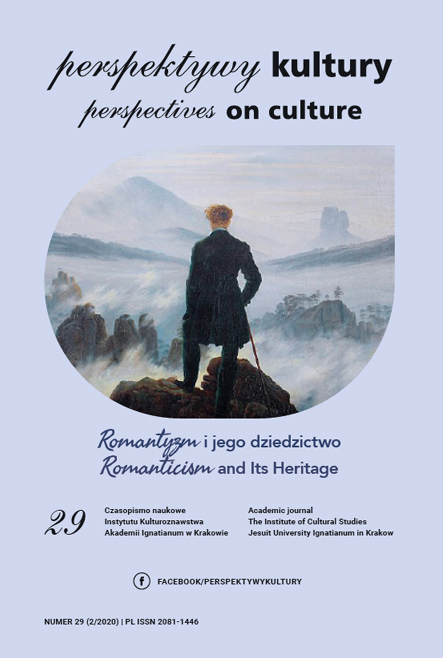Intercultural Management in Educational Organizations
Abstract
Human capital is an outstanding factor in any country’s competitiveness. This fact affirms the decisive role of education in the raise of a country’s economic and social prosperity in the international space. Reforming of domestic higher education system is carried out in the direction of new educational management support, universities management, scientific activity financing and intercultural interaction of universities with personalities, cultures and business. In that context most of the educational organizations become multicultural and multinational ones. That is why universities as intercultural spaces are the focus of this paper. Contemporary universities face many challenges including the tasks of remaining intellectually and culturally viable in a fast changing world, preparing students to compete in the global labor market and interact with people from other ethnic, religious, cultural, national and geographic groups. Different approaches to the concept of “intercultural management in educational organizations” have been defined and its improvement resources in the higher education system have been identified. Taking into consideration that intercultural management is comprised of intercultural competences, the notion “intercultural competence” has been thoroughly analyzed. It was concluded that intercultural management, based on different dimensions of knowledge, attitudes, abilities and skills, is generally defined as the capability of successful communication and high performance of an organization in collaboration with other cultures.
References
Bennett, J.M. (2011). Developing Intercultural Competence for International Education Faculty and Staff. In: Proceedings from 2011 AIEA Conference Workshop. San Francisco SA: AIEA.
Bourdieu, P. (2001). Prakticheskiy smyisl [Practical sense]. Sankt-Peterburg: Altea (in Russ.).
Boyko, O.P. (2013). Rol profesiinoi kultury u kulturno-dozvillievii sferi [The roll of professional culture in the cultural-permitting sphere]. Filosofiia nauky: tradytsii ta novatsii [Philosophy of science: traditions and innova¬tions], 1(7), 104–110 (in Ukr.).
Cantalupus, N. and Parker, R. (1721). The History and Antiquities of the Uni¬versity of Cambridge. London.
Carter, E. (1753). The History of the University of Cambridge, from Its Original to the Year 1753. London.
Catalogue of the New-York State Library: January 1, 1846 (Classic Reprint).
Chatterton, P. and Goddard, J. (2000). The Response of Higher Education Institutions to Regional Needs. European Journal of Education, 35(4), 475–496.
Chen, G. and Starosta, W. (1999). A review of the concept of intercultural awareness. Human Communication, 2, 27–54.
Deardorff, Darla K. (2004). In Search of Intercultural Competence. Interna¬tional Educator. Spring, 13–15.
Dyurkgeym, E. (2008). Sotsiologiya. Ee predmet, metod, prednaznachenie [Socio¬logy. Its subject, method, purpose]. Moskva: Terra–Knizhnyiy klub (in Russ.).
Fantini, A.E. (2007). Exploring and Assessing Intercultural Competence. St. Louis, MO: Washington University, Center for Social Development.
Fenner, A. (2017). Intercultural Awareness as an Integral Part of Foreign Lan¬guage Learning. In: A.B. Fenner and D. Newby (eds.), Coherence of Prin¬ciples, Cohesion of Competences. Exploring Theories and Designing Materials for Teacher Education. Strasbourg: European Centre for Modern Langua¬ges–Council of Europe Publishing, 40–58.
Graham, J. (2001). The Social Thought of Ortega-y-Gasset: A Systematic Synthe¬sis in Postmodernism and Interdisciplinary. Columbia, MO: University of Missouri Press.
History of Universities (2011). Vol. XXV/2. ed. Mordechai Feingold. Oxford University Press.
Jokikokko, K. (2005). Perspectives to intercultural competence. Research in Educational Sciences, 23, 89–106.
Klark, B.R. (2011). Sistema vyisshego obrazovaniya: akademicheskaya organizat¬siya v kross-natsionalnoy perspective [The system of higher education: an academic organization in a cross-national perspective]. Moskva: Izd. dom Vyisshey shkolyi ekonomiki (in Russ.).
Kutsenko, V.I. (2008). Sotsialna sfera: realnist i konturi maybutnogo (pitannya teo¬riyi i praktiki) [Sotsialna sfera: realnist i konturi maybutnogo (pitannya teo¬riyi i praktiki)]. Nizhin: TOV «Vidavnitstvo «aspekt-PolIgraf» (in Ukr.).
Milenkova, R.V. (2007). Innovatsiyna kultura: metodichniy suprovid for¬muvannya: navchalno-metodichniy posibnik dlya organizatsiyi prakt. zanyat ta samost. vyvch. dists. Retrieved from: http://dspace.uabs.edu.ua/ jspui/handle/123456789/5531.
Neuliep, J. (2006). Intercultural Communication. A Contextual Approach. Thousand Oaks, CA: Sage.
Ortega-y-Gasset, X. (2010). Misia Universiteta [University mission]. Moskva: Izd. dom Gos. un-ta–Vyisshaya shkola ekonomiki (in Russ.).
Otroshchenko, L. (2018). Dosvid menedzhmentu systemy vyshchoi osvity Nimechchyny. Visnyk Kyivskoho Natsionalnoho Universytetu kultury i mystetstv. Seriia: Menedzhment sotsiokulturnoi diialnosti. Kiyiv, 2, 120– 133 (in Ukr.).
Parmenter, L. (2016). Intercultural communicative competence. Retrieved from: http://www.tb.sanseido.co.jp.
Ridings, B. (2017). Universitet v ruinah [University in ruins]. Moskva: Viss¬haya shkola ekonomiki (in Russ.).
Saburova, E.V. (2009). Features of Marketing of Modern University Cities (on the Example of Oxford and Cambridge). Actual Problems of the Humani¬ties and Natural Sciences, 11, 144–147.
Schuch, J. (2003). Interkulturelle Kompetenz – die Kür der Kinder- und Jugendarbeit? Jugendsozialarbeit News, 5(5).
Sorokin, P.A. (2017). Sotsialnaya i kulturnaya dinamika [Social and cultural dynamics]. Moskva: Akademicheskiy proekt (in Russ.).
Vasilchenko, G., Parasyuk, I. and Eremenko, N. (2015). Asotssitsiya mist Ukrayini [Association of cities of Ukraine]. Kiyiv: TOV PIDPRIEMSTVO «VI EN EY» (in Ukr.).
Yankovska, O. (2015). Rol universitetiv v ekonomichnomu rozvitku mist, regio¬niv, krayini. Zvit III Natsionalnogo forumu «Biznes I universiteti» [The role of the university in economical development mist, regional, kraini. Zvit III National Forum “Business & Universities”]. Kiyiv: Tsentr rozvitku korpo¬rativnoyi sotsialnoyi vidpovidalnosti (in Ukr.).
Zaleskienė, I. (2012). Pilietinė komunikacija ir tarpkultūrinis ugdymas. Acta paedagogica Vilnensia, 16, 56–62.
Copyright (c) 2020 Jesuit University Ignatianum in Krakow

This work is licensed under a Creative Commons Attribution-NoDerivatives 4.0 International License.
Autor, zgłaszając swój artykuł, wyraża zgodę na korzystanie przez Wydawnictwo Uniwersystet Ignatianum z utworu na następujących polach eksploatacji:
- utrwalania utworu w formie papierowej, a także na nośniku cyfrowym lub magnetycznym;
- zwielokrotnienia utworu dowolną techniką, bez ograniczenia ilości wydań i liczby egzemplarzy;
- rozpowszechniania utworu i jego zwielokrotnionych egzemplarzy na jakimkolwiek nośniku, w tym wprowadzenia do obrotu, sprzedaży, użyczenia, najmu;
- wprowadzenia utworu do pamięci komputera;
- rozpowszechniania utworu w sieciach informatycznych, w tym w sieci Internet;
- publicznego wykonania, wystawienia, wyświetlenia, odtworzenia oraz nadawania i reemitowania, a także publicznego udostępniania utworu w taki sposób, aby każdy mógł mieć do niego dostęp w miejscu i czasie przez siebie wybranym.
Wydawca zobowiązuje się szanować osobiste prawa autorskie do utworu.





